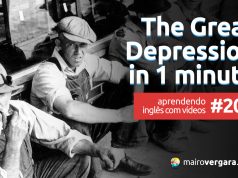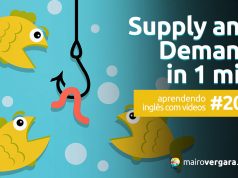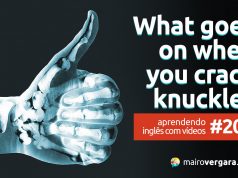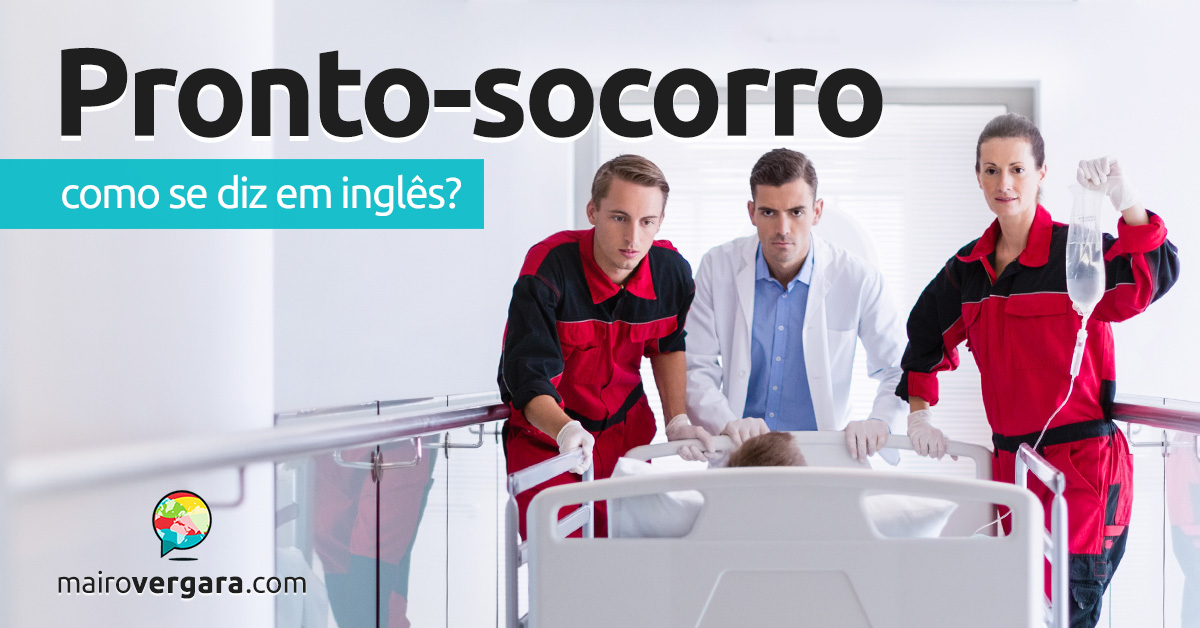Aprendendo inglês com vídeos é uma série de posts em que traremos para vocês vídeos acompanhados de transcrições e traduções, pois este é um material de altíssima qualidade para qualquer estudante de inglês. A grande maioria dos vídeos virão do YouTube, assim como forma de retribuir aos criadores dos vídeos incríveis que vamos usar, pedimos que você sempre dê o seu “Gostei” no vídeo (ao clicar para reproduzir o vídeo você verá a opção “gostei” no próprio vídeo).
Habit 2 – Begin With the End in Mind (Transcrição)
Hi there, Steve Kaufmann here. Today is the second in this series of short videos about Stephen Covey’s 7 Habits of Highly Effective People. His second habit was what he calls ‘Begin With the End in Mind.’ This is very important. I’ll give you an example.
I had a meeting with about 50 Chinese immigrants, here in Vancouver, who were complaining about the difficulty that they had in speaking English. And, they claimed that they could read, perhaps didn’t understand quite as well when they were listening, but they had real trouble saying something. My question to them is: What is their vision of what they would like to be able to do in English? If their vision of what they want to do in English is to be able to, when suddenly confronted with an English-speaking person is to be able to say something in English.
I should point out that these were housewives, wives of wealthy Chinese immigrants who don’t have much interaction with Canadian society, but then when they are confronted with the need to speak English, of course, can’t do so. I said, what’s your goal and they weren’t really clear. I said that if I were you, if I had immigrated to another country, my goal, because I’m an adult and I can communicate as an adult in my own language, my goal in this new language, especially if I’m living there, is to be able to communicate as an adult in the new language therefore on a wide range of subjects without struggling, without seeming to be foolish. That’s the goal.
You have to have a clear idea of that goal. If you have a clear idea of that goal you will achieve it. If you don’t have a clear idea of that goal, if you think you’re just going to learn some words and try and learn some grammar rules and then you wonder why you can’t communicate properly you will probably not succeed. I always make the case if you don’t know where the top of the mountain is, if you can’t visualize yourself reaching the top of the mountain you probably won’t make it to the top of the mountain.
So I think the second of Covey’s habits, is this habit of saying, insofar as language learning is concerned, here’s what I want to achieve. I can visualize myself achieving this and, therefore, I will work as hard as I can to achieve it.
So that is habit number two. Thank you for listening, bye for now.
Hábito 2 – Comece Com o Final em Mente (Tradução)
Olá, Steve Kaufmann aqui. Hoje é o segundo nesta série de vídeo curtos sobre os 7 hábitos das pessoas altamente eficientes de Stephen Covey. O segundo hábito dele era o que chamamos de “Comece com o final em mente”. Isso é muito importante. Eu vou te dar um exemplo.
Eu tive uma reunião com aproximadamente 50 imigrantes chineses, aqui em Vancouver, que estavam reclamando da dificuldade que eles tinham em falar inglês. Eles alegavam que conseguiam ler, talvez não entendessem tão bem quanto eles estavam ouvindo, mas eles tinham um grande problema para falar alguma coisa. Minha pergunta para eles é: Qual é a visão deles sobre o que eles querem ser capazes de fazer em inglês? Se a visão deles sobre o que querem fazer em inglês é serem capazes, quando de repente confrontados com uma pessoa falante de inglês, é ser capaz de dizer algo em inglês.
Eu gostaria de salientar que estas eram donas de casa, esposas de imigrantes chineses ricos que não tem muita interação com a sociedade canadense, mas quando eles são confrontados com a necessidade de falar inglês, claro, não conseguem. Eu disse, qual o seu objetivo? E eles não foram muito claros. Eu disse, se eu fosse vocês, se eu tivesse imigrado para outro país, meu objetivo, porque sou um adulto e eu posso me comunicar como um adulto na minha própria língua, meu objetivo nesse novo idioma, principalmente se eu estiver vivendo lá, é ser capaz de me comunicar como um adulto na nova língua, portanto, em uma ampla gama de assuntos sem precisar lutar com isso, sem parecer ridículo. Esse é o objetivo.
Você tem que ter um ideia clara desse objetivo. Se você tem uma ideia clara desse objetivo que você quer aprender, você vai alcança-lo. Se você não tiver uma ideia clara desse objetivo, se você pensa que você vai somente aprender algumas palavras e aprender algumas regras de gramática, e aí você quer saber porque você não consegue se comunicar adequadamente, você provavelmente não terá sucesso assim. Eu sempre dou como exemplo, que se você não sabe onde o topo da montanha é, se você não pode se visualizar alcançando o topo da montanha, você provavelmente não vai conseguir chegar ao topo da montanha.
Então, eu acho que o segundo dos hábitos de Covey, é esse hábito de dizer, com relação ao aprendizado de idiomas, aqui está o que eu quero alcançar. Eu posso me visualizar alcançando isso e, portanto, eu irei trabalhar o mais duro que eu puder para alcançar isso.
Então esse é o hábito número dois. Obrigado por ouvirem, tchau por enquanto.
Espero que vocês tenham gostado do vídeo de hoje e da transcrição/tradução! Como sempre, não deixem de visitar o vídeo no Youtube e dar o seu “gostei”, pois assim vocês estão ajudando o trabalho dos criadores desses vídeos incríveis! Link para o vídeo no YouTube: https://www.youtube.com/watch?v=Fb-_JLx9Zp8 Abração e bons estudos a todos vocês!










